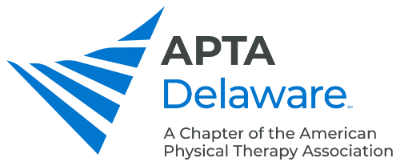Because of inaction by Congress, the hard cap on outpatient therapy services under Medicare has been implemented. The cap, which began on January 1, 2018, includes no KX modifier exceptions and has created uncertainty for providers, patients, and their families.
APTA has requested that the US Centers for Medicare and Medicaid Services (CMS) provide information and guidance for providers on how the (temporary, it is hoped) hard cap will be managed. While the association waits for that response, here are a few questions and answers that shed some light on where things stand.
What is the therapy cap for calendar year 2018?
The allowed dollar amount for 2018 for outpatient physical therapy and speech-language pathology combined is $2,010. For occupational therapy, the cap is set at $2,010.
What Part B outpatient therapy settings and providers does the therapy cap apply to?
- Physical therapists’ (PTs’) private practices
- Offices of physicians and certain nonphysician practitioners
- Part B skilled nursing facilities
- Home health agencies (visits provided on an outpatient basis)
- Rehabilitation agencies (also known as outpatient rehabilitation facilities)
- Comprehensive outpatient rehabilitation facilities
- Critical access hospitals (CAHs)
What is the targeted medical review threshold for 2018?
With the implementation of the hard therapy cap on January 1, 2018, there is no targeted medical review threshold. This is subject to change, pending congressional action.
Does the 2018 hard therapy cap apply to hospital outpatients?
No. Hospital outpatient departments or clinics (OPs) were not originally included under the therapy cap when it was first enacted as part of the Balanced Budget Act in 1997. That exclusion was lifted when hospital OPs were added to the manual medical review process in 2012. Later, hospital OPs were regularly made subject to the cap as part of the stopgap exceptions routinely enacted by Congress. But in 2017, Congress not only failed to end the hard cap; it failed to create an exceptions process of any kind, meaning we’re back to the hard cap as originally written, which doesn’t include hospital OPs.
Does the hard therapy cap apply to observation-status patients in hospital outpatient departments?
No. The hospital setting is not included under the hard therapy cap that went into place on January 1, 2018 (see hospital outpatient question above). Hospital outpatients include those in observation status. Therapy services furnished to patients on observation status are billed as outpatient therapy services under Medicare Part B; however, because the hospital setting is not included under the hard cap, observation status patients are excluded.
Does the hard cap apply to Critical Access Hospitals?
Yes. Before October 1, 2012, the therapy caps applied to all outpatient therapy services except those furnished by outpatient hospitals and CAHs. Beginning January 1, 2014, the outpatient therapy caps, and related provisions, were applied to therapy services furnished by a CAH. Therapy services furnished by a CAH are counted toward the therapy caps as if the services were paid under the Medicare physician fee schedule.
When are therapists required to issue the mandatory Advance Beneficiary Notice (ABN) for therapy services?
Providing the patient with an ABN transfers liability and charge to the beneficiary, and becomes a crucial duty of the therapist now that the no-exceptions cap is in place. Providers must issue a valid, mandatory ABN to the beneficiary before providing services above the cap when there is no therapy coverage exceptions process. Therapists also are required to issue the ABN to original (fee-for–service) Medicare beneficiaries before providing therapy that is not medically reasonable and necessary.
Wasn’t Congress ready to permanently end the hard cap? What happened?
It’s true: over the fall, a bipartisan, bicameral deal was reached that would have permanently eliminated the hard cap on therapy services. That deal was part of a larger piece of legislation that included other changes to Medicare, such as payments for ground ambulances and reauthorization of special needs plans. This package of so-called “Medicare extenders” was supposed to be adopted in early December. Unfortunately, the debate over the tax reform legislation dominated Congress in the final weeks of session, pushing nearly all other issues to 2018.
What happens next?
The Senate returned to Washington on January 3, and the House will return on January 9. The first opportunity to address the hard cap will come when Congress takes up a spending bill that must pass in order to keep the government open after January 19. There are also opportunities for the cap repeal to be included in any of a number of other critical health care programs that expired on December 31, which Congress must act on immediately. Unfortunately, there are no sure bets: given the current political climate in Congress, including other unrelated, controversial issues in play, it is unclear if Congress will act quickly. APTA, the American Occupational Therapy Association, the American Speech-Language-Hearing Association, and other allies in the Therapy Cap Coalition will continue to keep pressure on Congress to take quick action on the therapy cap in January.
Will Congress retroactively apply any fix to the Therapy Cap back to January 1, 2018?
Nothing is certain at this point. APTA and its partners are asking Congress to apply any fix retroactively to January 1, 2018.
What can I do?
It’s important for the physical therapy profession to advocate for this critical permanent fix to the therapy cap. Contact your members of Congress today via email, phone, and social media, and urge them to pass the therapy cap permanent fix as soon as possible. Visit APTA’s Medicare Therapy Cap webpage for more information, download the APTA Action App to keep up-to-date on action alerts, and be sure to stay tuned for additional updates.
